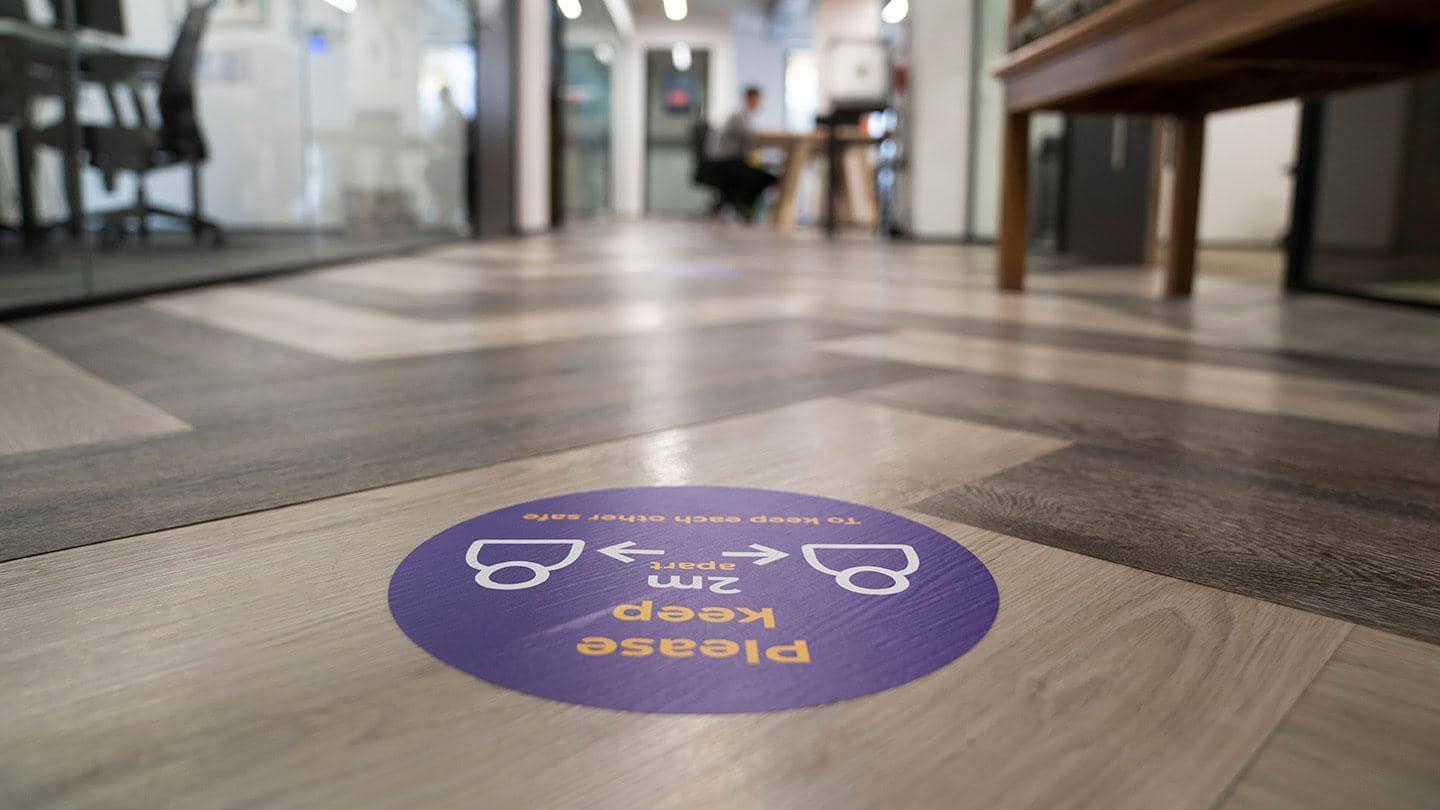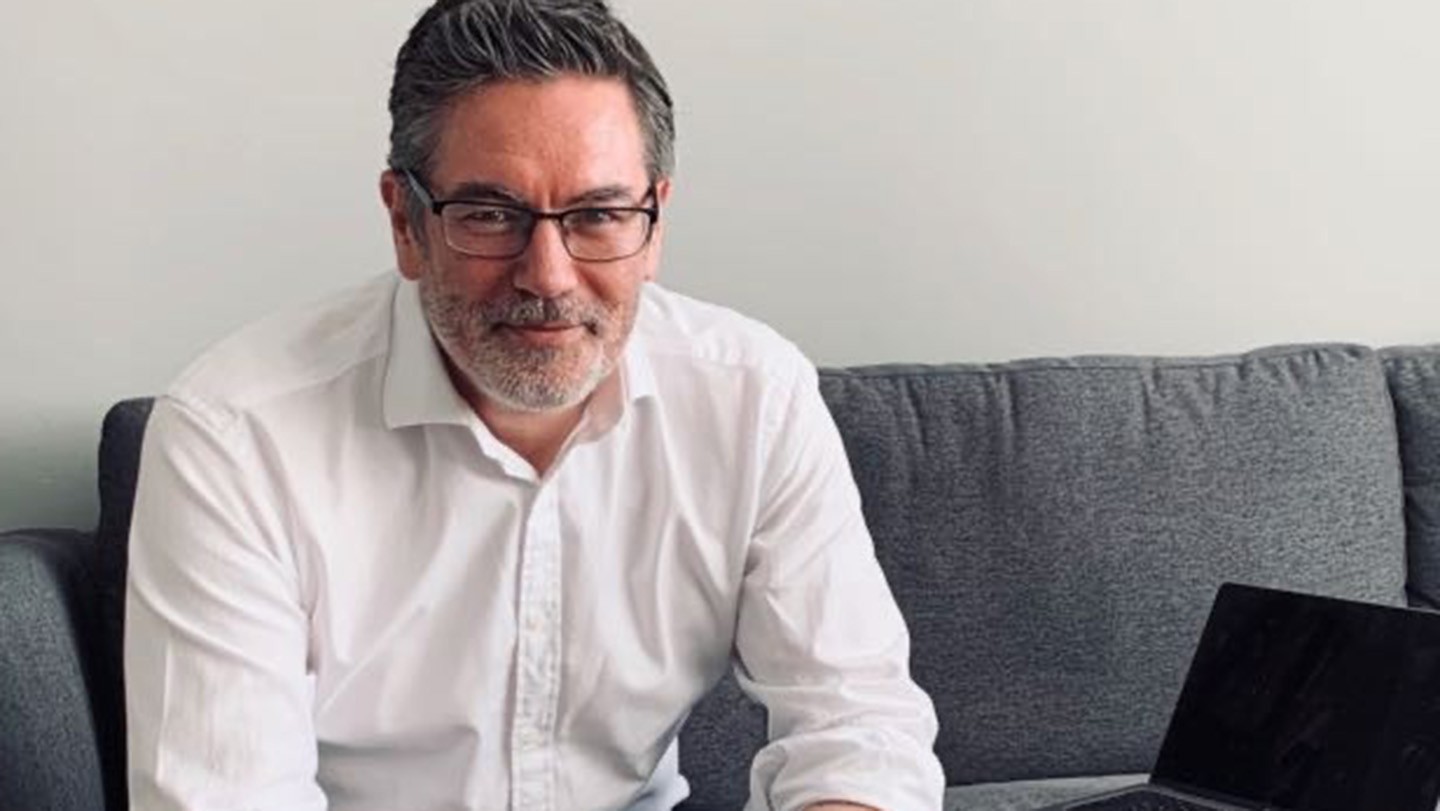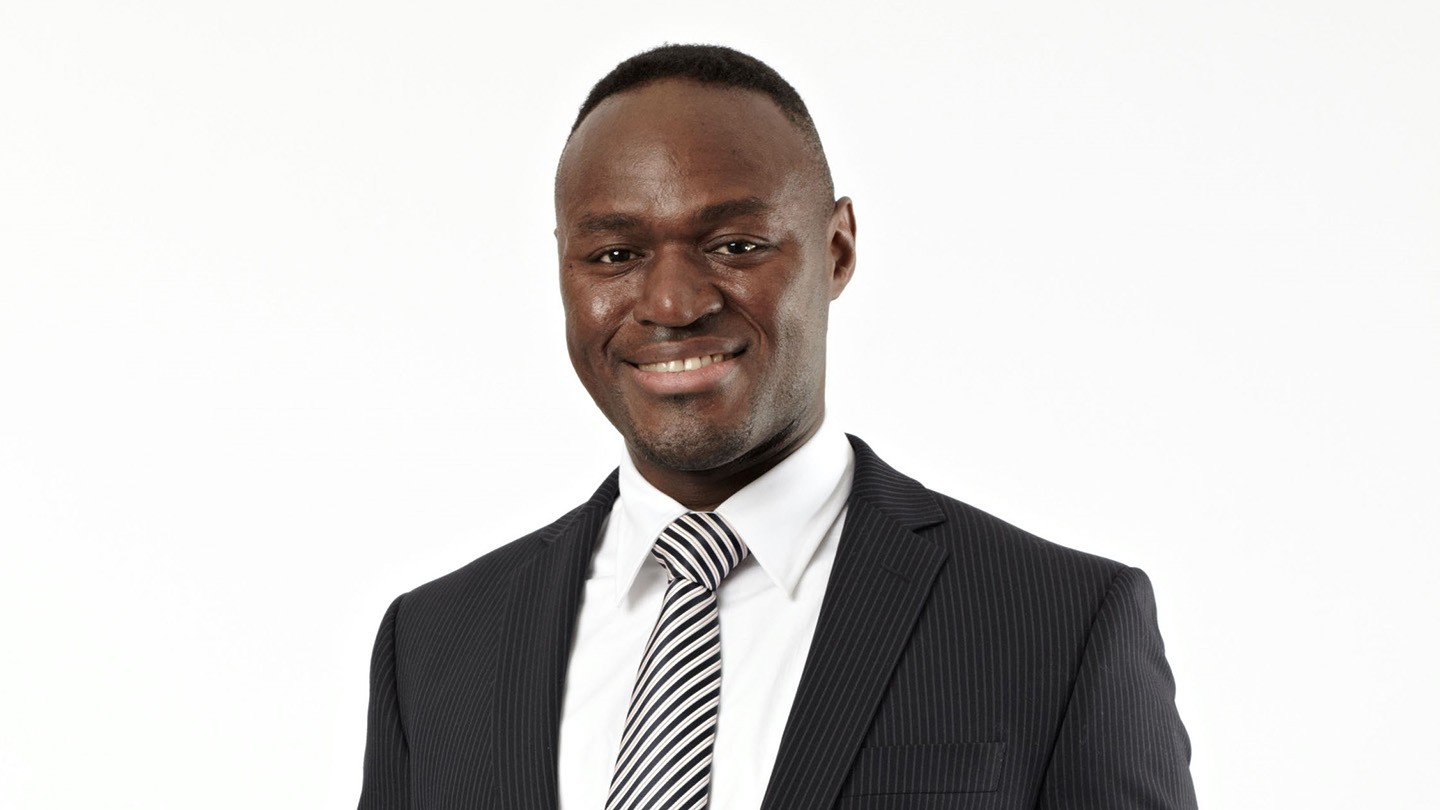
Innovation
How six Eagle Labs startups adapted during lockdown
As lockdown struck and Barclays Eagle Labs shut their physical doors, the startup companies nurtured by the entrepreneurial network could still rely on support to help them through challenging times. As the UK enters a new period of the pandemic, we hear from six entrepreneurs on how it has changed their approach to business – and how Barclays is continuing to help them innovate.
“The pandemic has changed the order of some challenges, but not the challenges themselves” – Chris Kirby, Tomorrow’s Journey
Chris Kirby, Co-Founder and CEO of Tomorrow’s Journey, imagines a world with “fewer vehicles, used more often”. His startup provides the software behind future transport business models, allowing customers more flexible access to vehicles – and more profitable business models for operators.
Lockdown led to a series of challenges for the Milton Keynes-based company. “We were in the process of going through a funding round this year,” remembers Kirby. “At the point of lockdown, our seed investor said all their investments were pausing. That left us relatively cash-light.”
This prompted a change in focus for the business. With the physical difficulty of finding fresh investment during lockdown, they were forced to further increase their revenue efforts. “That’s actually been a positive for the business, as it turned out that clients still wanted to work with us,” Kirby says.
As a result, Tomorrow’s Journey has secured a number of exciting commercial contracts in the past few months, meaning the future is looking bright for the company.
A partnership with Barclays has also been vital in bridging the gap to where the business is now. The support we’ve had has been very hands-on, both with our client manager and the team in the Eagle Lab,” Kirby says.
“It wasn’t just processing our Bounce Back Loan: even before the government schemes were launched, the bank was very quick to say that it could give us an overdraft without a director’s guarantee. I don’t think we’d have survived if we hadn’t had that interim funding, because it took a while to get our revenue drive underway.”
Kirby believes that the pandemic has accelerated existing trends in the sector, such as contactless vehicle access for rental cars.
Similarly, a change in his company’s business model from a commission-based approach to a subscription service “happened sooner than it might have done to help our cashflow” – but leaves Tomorrow’s Journey in a good place for future investment.
“The pandemic has changed the order of some challenges, but not the challenges themselves. From a business point of view, despite the disruption, we’re actually in a better place today than we were at the start of the year.”
“We really feel cared-for by Barclays. It’s accelerated the business” – Anna Plaster, Oasis
Oasis, a business co-founded by CEO Anna Plaster, offers UAV (unmanned aerial vehicle) technology that provides surveillance and inspection capabilities to a number of different industries.
“In March, we were at a tipping point with the business waiting for results from some important contracts – national contracts with big names in the energy industry – and lockdown knocked everything out,” says Plaster..
We moved bank from a lender we did not feel was interested in supporting the business or working with us. Now, we really feel cared-for
CEO and Co-Founder, Oasis

Anna Plaster says that good mentors and stakeholders have been important during the coronavirus crisis.
While the company could still use drones to remotely see the condition of assets, existing clients and potential ones being out of office put things at a standstill.
“It could have been crushing, but we’re very resilient and have deep startup experience, as well as good mentors and stakeholders around us.”
Faced with this “phenomenal” level of disruption, communication with the bank has been key.
“Barclays have been great since the start,” she says. “I know that if I need anything – whether it’s introductions or financial advice – I can pick up the phone and get a responsive, reliable answer for whatever I need.
“We moved bank from a lender we did not feel was interested in supporting the business or working with us. Now, we really feel cared-for. It’s accelerated the business, partly through the network we’re exposed to, but also in the university ecosystem via Cranfield. I couldn’t ask for more – other than I want to go back to the Lab again to take part in events.”
“COVID-19 made us more focused on executing work as hard and fast as we could” – Duncan Hart, DeepMiner
Co-Founder and CEO Duncan Hart and his team developed the business search engine, DeepMiner, a system that sidesteps the influence of search engine optimisation and ad revenue, to “bring back the best information quickly” and provide clients with a time and knowledge edge.
“The biggest challenge for us was that we launched a completely redesigned product in the middle of a pandemic,” Hart remembers. While DeepMiner’s focus on knowledge and data became even more crucial during lockdown, he says a key concern for the business was getting their message through, “with everything else going on”

Duncan Hart says that Barclays content has been a useful resource for DeepMiner.
A large amount of the content Barclays has been sharing has been very relevant to us – I haven’t felt they’ve just been churning out webinars. The team in Aberdeen has been fantastic
Co-Founder and CEO, DeepMiner
Hart recalls “a month or two where companies basically stopped operating normally. Contracts were stalled as companies adjusted. Finance became an issue as the venture capital world held their powder and some say the terms were getting harder.”
In the midst of this, DeepMiner found the Bounce Back Loan and a grant from Aberdeen City Council “a godsend”, meaning no employees were furloughed. “We actually took on a few people during lockdown,” Hart says.
Taking on feedback from customers, the company adapted to “a slightly different direction to where we expected to go. We were speedily building new algorithms to deliver focused, direct information. COVID-19 made us more focused on executing work as hard and fast as we could.”
He describes Barclays’ reaction to the pandemic as proactive. “A large amount of the content they’ve been sharing has been very relevant to us – I haven’t felt they’ve just been churning out webinars. The team in Aberdeen has been fantastic.
“Going forward, we’re looking at leveraging the local networks around Eagle Labs more than we did previously. Knowing there’s somebody out there who will speak to you is a help in itself.”
“Our relationship with Barclays has helped a lot during the pandemic” – Kelvin Hamilton, FlareBright
FlareBright uses machine learning, embedded AI and miniaturisation to integrate cutting-edge software and “nanodrones” that are fully autonomous.
As lockdown began, team members at FlareBright were based at Barclays’ specialist Cranfield Eagle Lab. At this point they had a prototype nanodrone – designed to be autonomous and effective whatever the weather or GPS conditions – to showcase, as they tried to raise capital.
The investment round was aiming for £500,000, but Hamilton says: “We had two venture capitalists lined up. One of them stated they wanted to delay due to COVID uncertainty, and the other asked to reduce their investment, based on available funds. But we did get enough investment to have a cushion for the immediate future. Securing investment in such a challenging time was a real sign of success.”
However, the business still faced cashflow challenges. “Unfortunately, we weren’t eligible for any government initiative,” explains Hamilton. “We couldn’t furlough, we hadn’t the revenue track record for any of the loan schemes.” FlareBright did get good news over lockdown in the form of a Ministry of Defence contract, but with the contract paid in arrears, it looks like Barclays will be stepping in by “proactively arranging a working capital facility for us, which is great. And it’s been an advantage to talk to someone in person, rather than dealing with web forms.”
“Our relationship with Barclays has helped a lot during the pandemic,” Hamilton reflects. “The Eagle Lab in Cranfield is a superb facility – with a workshop and an excellent technician, Doug. We’re a small startup and we just don’t have the money to buy the machining equipment that Doug has in the workshop. When the Eagle Lab had to physically close its doors, it was tough for us, but what was brilliant was that Barclays got in touch to tell us they weren’t going to charge any fees for the duration. That was incredibly helpful when every pound helps.”
“New entrants have to prove their product is better than what’s out there now. That’s the beauty of innovation” – Leke Babalola, SignTech Paperless Solutions
SignTech Paperless Solutions aims to make offices paperless, by helping create workflows that can be completed on smartphones, tablets and PCs.
“Our customers have always had the need for our product,” says Babalola. “Any company that still uses paper-based processes has to rethink what they’re doing in today’s technology-enabled world. Furthermore, the pandemic has highlighted the need for that rethink because COVID can live on pens or paper, so it’s made the case for our products even clearer. But there’s still a process companies have to go through to realise that.
If we don’t have innovative companies who have nothing to lose, we won’t advance
Founder and CEO, SignTech Paperless Solutions

Leke Babalola says innovation in early-stage companies is crucial.
When lockdown struck, new customer engagement went on hold, so Babalola’s company moved to “a more agile working process”. Barclays helped the team overcome some of these challenges too: “While losing the opportunity to be in the Eagle Lab was a blow, we continued to work with their team to set up a webinar to allow us to present our technology to great companies. And they have also given us a platform to pilot products and present to customers in a safe environment.
“It’s a shock to the system getting used to working from home every single day,” he explains. “But Eagle Labs set up calls bringing everyone together. That reaching out was helpful at the beginning of lockdown to help us keep going and stop getting lost in panic. They went above and beyond, knowing that companies might be finding it difficult to cope.”
Widespread home-working also provided an opportunity for the company to develop a cloud-based paperless office suite.
Babalola says the pandemic has made the work of early-stage companies more important than ever. “If we don’t have innovative companies who have nothing to lose, we won’t advance. The market leaders in our field have huge revenues, but they don’t have the incentive to improve because of the risk that it won’t work. New entrants look to make things better and have to prove their product is better than what’s out there now. That’s the beauty of innovation.”
“The first couple of weeks were pretty intense” – Chris Palk, DabApps
Managing Director Chris Palk’s company, DabApps, designs and builds bespoke software tools to solve business problems.
At the beginning of lockdown DabApps faced common challenges with remote communication.
“The first couple of weeks were pretty intense with daily updates and changing guidelines from the government,” Palk says. “Looking after our people, ensuring everyone was well-informed and had the right home set-up to do their work was key. We also spoke to all of our clients about their experience, to establish how we could help, and where we would need to focus our developers.”
Like most businesses, the pandemic has forced many of DabApps’s clients to review their priorities, identify new ways of working and adjust their business goals. “This in turn has led to a busy few months for us,” Palk says. “We’ve been collaborating with clients to rework roadmaps, develop new features and support the changes needed to make their product a success in what is a very different climate.
“This all required a lot of work and coordination but the whole team really pulled together and on balance we’ve made a success of it. I think we all recognise how lucky we are to be in that position given the pandemic – both at a company and individual level.”
Palk adds that the partnership with Barclays has been important throughout 2020: “We’ve attended some really valuable Barclays remote networking events throughout lockdown. These have not only been a great opportunity to talk to other businesses about how they’re coping with the pandemic, but it’s good to see some different faces!
“The team at Eagle Labs has been brilliant, acting quickly and keeping us up to date with plans. We’re very much looking forward to going back into the office soon and making the most of the opportunities the Lab workspace offers us. And we feel absolutely assured in their approach to reopening the office, so it’s safe for all.”